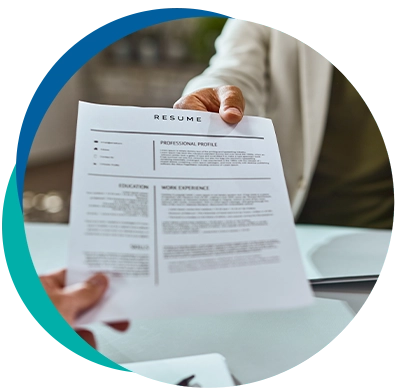Life in Aotearoa New Zealand
Nau mai, haere mai, welcome. Ready to experience life in Aotearoa New Zealand?
New Zealand is known around the world for its great quality of living, spectacular scenery and relaxed pace of life. New Zealanders are hardworking, but also appreciate a good work-life balance, spending their spare time exploring the outdoors, playing sports and spending quality time with friends and family. The culture in New Zealand is open-minded and welcoming of people from diverse cultures, countries and religions.
For international learners, New Zealand offers a safe, inclusive environment with world-class education. You will have the opportunity to immerse yourself in the beautiful natural landscapes, from beaches to mountains, and experience a strong sense of community both in and outside of your studies. Whether hiking, joining a local sports team, or participating in cultural festivals, there is always something to enjoy.
Watch the video below to discover what makes New Zealand a place of real life, real space, real people, and real opportunity. This is where your future begins.
Māori culture is New Zealand’s indigenous culture and is an integral part of life in New Zealand.
The welcoming spirit in New Zealand comes from a core principle of Māori culture, Manaakitanga. It means hospitality, kindness, generosity, support – the process of showing respect, generosity and care for others.Its influence can be seen in the way we speak, act, think, eat, learn and treat one another.
It’s important to get to know, understand and respect Māori customs while living in New Zealand.
More information on life in New Zealand
Accommodation and living costs
Living costs in New Zealand will vary depending on accommodation, style of living, and how much you choose to spend on leisure and recreation activities.
Education New Zealand provides some useful information on living costs in New Zealand: www.studywithnewzealand.govt.nz/en/why-new-zealand/living-in-new-zealand/cost-of-living
More information on accommodation and living costs

Banks and money
It is a good idea for you to open a bank account to keep your money safe and secure once you arrive in New Zealand.
The five major banks in New Zealand are ANZ, BNZ, Westpac, ASB and Kiwibank. Once you’ve decided which bank to use, opening a bank account should be a simple process. You will need to show them your passport and proof of address in New Zealand. Speak to a bank representative to choose the type of account best suited to you.
New Zealand’s unit of currency is the New Zealand Dollar (NZD). You can check exchange rates online at www.xe.com.
Transport
New Zealand offers a range of transport options to suit different needs, from buses to trains, ferries, and car rentals. Whether you are exploring cities or travelling between regions, you will find reliable and accessible ways to move around the country.
Driving in New Zealand
You are required to have a legal driver’s license to drive in New Zealand. In New Zealand, we drive on the left-hand side of the road. You must always wear your safety belt and keep within the speed limits. We also strongly recommend you get insurance for your car. For more information, please refer to the Consumer Affairs website.
More information on road safety and driver’s license requirements
Public transport
There are a range of public transport options to help you get around your city. If you are living in Auckland, we recommend you purchase an AT Hop Card to use for payment on buses, trains and ferries. During orientation, you will learn how to get a discount sticker so you can save on public transport with a tertiary student concession. Visit the AT HOP card website to find out more.
Safety
New Zealand is one of the safest countries in the world, ranked #3 in the 2025 Global Peace Index
We have low crime rates and are consistently recognised as one of the least corrupt countries in the world. However, as with any other country, crime and incidents can happen, so it is important to take sensible precautions to keep yourself safe. We recommend you:
- Always lock your home when you go out.
- Lock your car when you are not in it.
- Only go in well-lit areas if you’re out at night.
Cavalli College has an emergency phone available 24/7 for international learner emergencies, with a support person available at all times. This number should only be called where there is a significant threat to your health and safety, or a serious concern for your immediate welfare. All other issues and any queries relating to your study should be directed through the normal channels during working hours.
More information to help you stay safe and healthy in New Zealand
- Safety in the city
- Citizens Advice Bureau
- New Zealand Police:
Phone 105 (non-emergency) or phone 111 (emergency) - Mental health
- Support as an employee
Finding work in New Zealand
As an international learner, you may wish to work while you study, or stay on to work in New Zealand after you graduate.
Check your visa conditions to see if and when you’re allowed to work while studying in New Zealand. If you work when you aren’t allowed, you will be breaching your visa conditions and may have to leave the country.
You may also be required to complete workplace hours as a practical component of your study. This can be voluntary or paid employment in a role related to your learning and work aspirations. Visit the programme page or contact us for more information.
Some tips for finding work in New Zealand:
- Understand what New Zealand employers look for in hiring graduates.
- Get involved in the sector you want to work in while you are studying.
- Develop networks with fellow learners and employers while on work experience.
- Enhance your English language skills.
- Learn about the entry skills you need.
- Review employers and understand them.
- Learn how to apply for a job.
- Use your work experience while you are studying.
- Be positive and enthusiastic.
There are a range of helpful tools and information on jobs on the Careers New Zealand website: www.careers.govt.nz
Live and work in New Zealand: www.studyinnewzealand.govt.nz/live-work
More information on working on a student visa

